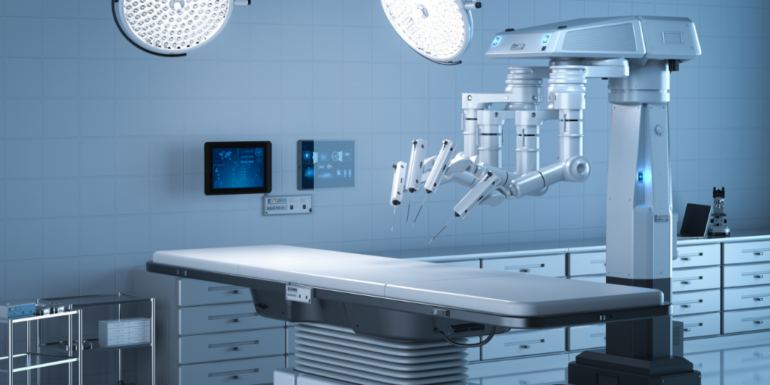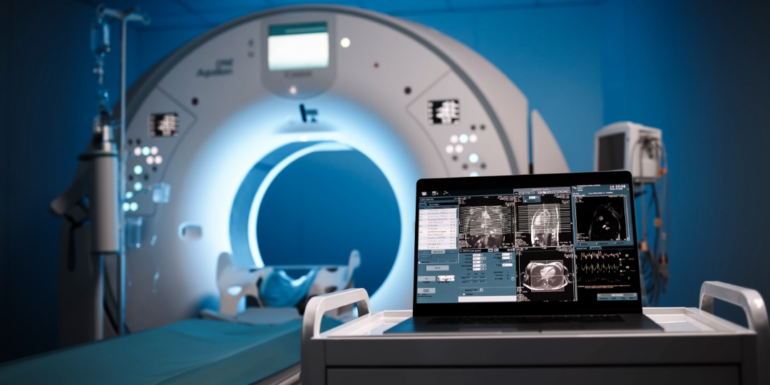Artificial intelligence (AI) has emerged as one of the most transformative forces in modern healthcare. From early disease detection to personalized treatment plans, AI is enhancing the way medical professionals diagnose, treat, and manage patient care. While some may view AI as a futuristic concept, its applications in clinical settings are already making a profound difference today.
I have witnessed firsthand how technology can be leveraged to improve patient outcomes and streamline medical processes. AI is not replacing human expertise; rather, it is augmenting our capabilities, allowing doctors, nurses, and healthcare administrators to provide more accurate, efficient, and compassionate care. Let’s explore some of the most promising AI-driven innovations that are currently shaping the future of healthcare.
Table of Contents
1. AI in Disease Diagnosis and Early Detection
One of the most significant breakthroughs in AI-driven healthcare is its ability to detect diseases earlier and with greater accuracy than traditional methods. AI-powered algorithms can analyze vast amounts of medical data—scans, lab results, genetic information—and identify patterns that may be missed by the human eye.
For example, in oncology, AI-driven imaging tools have shown remarkable accuracy in detecting cancerous tumors in mammograms and CT scans. AI models may be able to outperform radiologists in identifying breast cancer, reducing false negatives and ensuring that patients receive timely intervention. Similarly, AI is helping cardiologists analyze electrocardiograms (ECGs) to detect arrhythmias and heart disease before symptoms even manifest.
The power of AI in early detection is not limited to these fields. AI-based diagnostic tools are now being developed for neurodegenerative diseases such as Alzheimer’s and Parkinson’s, enabling doctors to recognize early signs and implement preventive measures.
2. Personalized Treatment Plans: Precision Medicine at Its Best
AI is playing a pivotal role in the evolution of precision medicine—an approach that tailors treatment to individual patients based on their genetic makeup, lifestyle, and medical history. Traditional medicine often follows a one-size-fits-all model, but AI is changing that by offering data-driven, highly customized treatment strategies.
For instance, AI algorithms analyze genetic information to predict how a patient will respond to a particular medication. This is particularly valuable in oncology, where targeted therapies based on tumor genetics are increasing survival rates and reducing unnecessary side effects. By understanding a patient’s unique genetic and molecular profile, doctors can prescribe the most effective drugs with minimal adverse reactions.
Beyond genetics, AI is being used to assess patient behaviors and lifestyle factors to recommend preventive measures. AI-powered apps and wearables collect real-time data on physical activity, diet, and sleep patterns, helping physicians guide patients toward healthier choices.
3. Predicting Disease Progression and Preventing Complications
One of AI’s most exciting applications is its ability to predict how a disease will progress and intervene before complications arise. This is particularly beneficial for chronic conditions such as diabetes, hypertension, and kidney disease.
For example, AI-driven predictive models analyze patient records to identify those at risk of developing complications. In diabetes care, AI can track glucose levels, diet, and medication adherence to anticipate fluctuations and provide early warnings, reducing hospital admissions. Similarly, AI-powered sepsis prediction models in hospitals alert physicians to early signs of infection, allowing for immediate intervention and potentially saving lives.
4. Revolutionizing Medical Imaging and Radiology
Radiology is one of the medical fields most profoundly impacted by AI. Traditional radiological interpretations rely on human expertise, which, while invaluable, is subject to fatigue and variation in interpretation. AI-driven imaging tools assist radiologists by providing highly accurate analyses of X-rays, MRIs, and CT scans, reducing diagnostic errors.
For instance, AI models trained on thousands of brain scans are now being used to detect strokes within minutes—a critical advancement, as rapid intervention is crucial for stroke patients. AI can also identify lung diseases in chest X-rays, including pneumonia and COVID-19, allowing for faster decision-making.
Radiologists are not being replaced by AI but rather empowered by it. These tools serve as a second set of expert eyes, confirming diagnoses and ensuring no critical details are overlooked.
5. Drug Discovery and Development: Accelerating Innovation
Developing a new drug traditionally takes over a decade and costs billions of dollars. AI is dramatically expediting this process by analyzing vast datasets to identify promising drug candidates more quickly and efficiently.
For example, during the COVID-19 pandemic, AI was instrumental in identifying potential antiviral compounds, leading to the rapid development of treatments. Pharmaceutical companies now use AI to predict how molecules will interact, reducing the need for lengthy and costly trial-and-error approaches.
This acceleration in drug discovery has the potential to revolutionize the treatment of rare diseases, where research funding and patient populations are limited.
6. Virtual Health Assistants and AI Chatbots
AI-powered virtual assistants are changing how patients interact with healthcare systems. These tools provide 24/7 support, answering medical questions, scheduling appointments, and reminding patients to take medications.
Chatbots like Ada and Buoy Health use AI to assess symptoms and guide users toward appropriate care. While they do not replace doctors, they serve as a valuable first point of contact, particularly in regions with limited access to healthcare professionals.

7. AI in Robotic Surgery: Enhancing Precision
Robotic-assisted surgery has seen incredible advancements with AI integration. AI-powered surgical robots assist surgeons by providing enhanced precision, reducing human error, and minimizing invasiveness.
For example, in orthopedic and neurosurgery, AI-driven robots help execute highly delicate procedures with greater accuracy, leading to faster recovery times and better patient outcomes. In laparoscopic surgeries, robotic arms controlled by AI improve dexterity, allowing for intricate maneuvers beyond human capability.
8. Remote Patient Monitoring and Telemedicine
AI has significantly improved remote patient monitoring, particularly for individuals with chronic illnesses. Wearable devices equipped with AI continuously track vital signs, detecting abnormalities and alerting healthcare providers in real time.
For instance, AI-powered smartwatches can detect atrial fibrillation (AFib), prompting users to seek medical attention before a stroke occurs. This proactive approach ensures timely interventions and reduces healthcare costs.
9. Streamlining Administrative Tasks in Healthcare
Beyond direct patient care, AI is transforming the administrative side of healthcare. AI-driven systems are automating medical coding, billing, and patient scheduling, reducing paperwork and freeing up valuable time for healthcare providers.
Natural language processing (NLP) enables AI to transcribe doctor-patient conversations into structured medical records, eliminating the need for manual documentation. This efficiency allows physicians to focus more on patient care rather than administrative burdens.
10. AI’s Role in Resource Allocation and Hospital Management
Hospitals and healthcare facilities are using AI to optimize resource allocation and predict patient admission rates. By analyzing historical data, AI can anticipate surges in emergency room visits, ensuring that staffing and supplies are appropriately distributed.
During the COVID-19 pandemic, AI models helped hospitals predict ICU occupancy rates, enabling proactive resource management. This level of preparedness is invaluable in maintaining high-quality patient care during crises.
Final Thoughts: AI as a Partner in Healthcare
Artificial intelligence is not here to replace doctors, nurses, or healthcare professionals—it is here to support and enhance their expertise. As AI continues to evolve, its role in healthcare will only grow, helping to create a more efficient, accurate, and patient-centered system.
While we must remain mindful of ethical considerations and data privacy concerns, the benefits of AI in healthcare are undeniable. By embracing this technology, we can ensure that medical professionals have the tools they need to provide the best possible care to their patients.
I am excited to see how AI will continue to shape the future of medicine. The possibilities are vast, and the potential for improving human health is truly inspiring.
